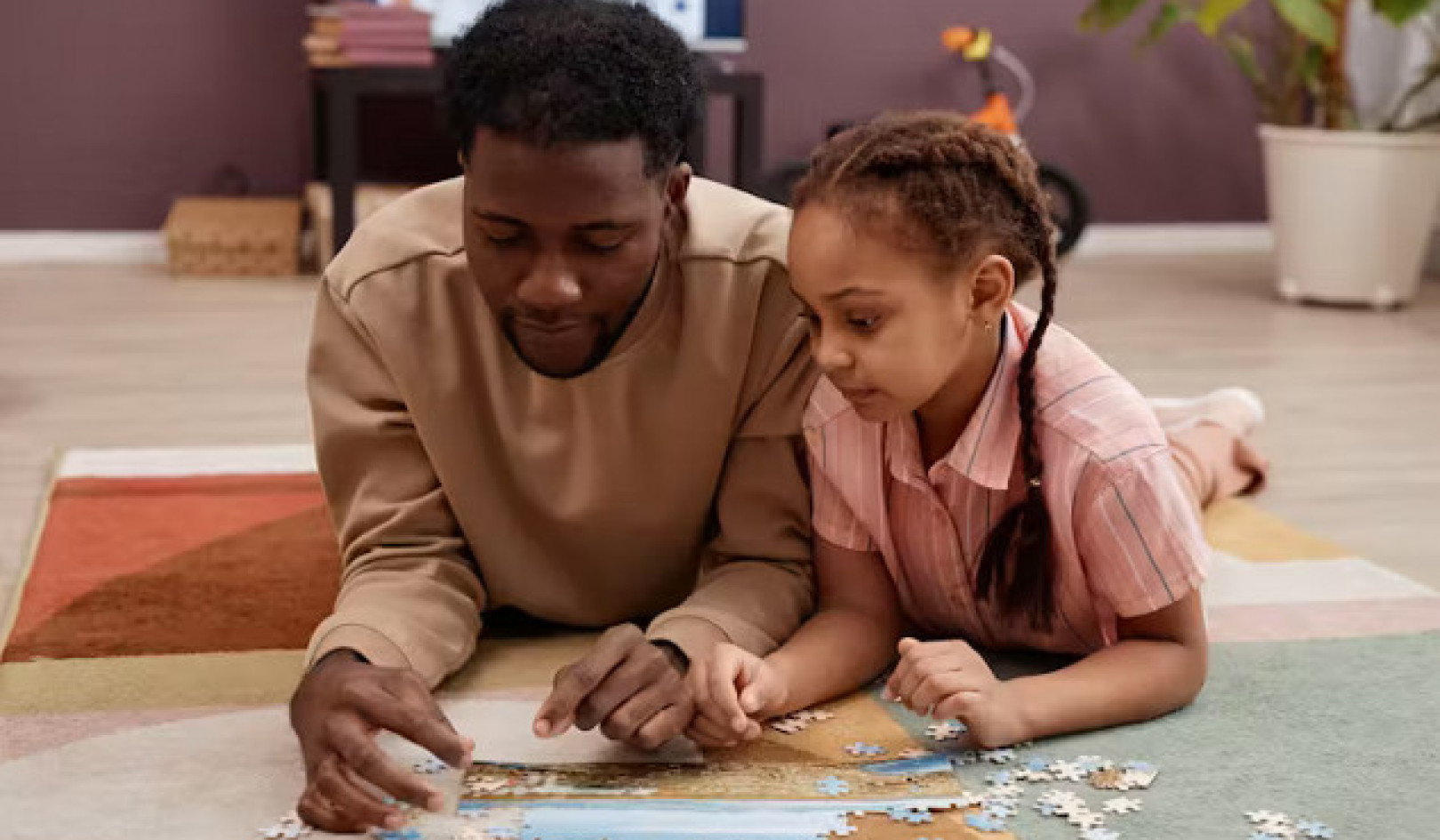
Image by Sasin Tipchai
(Editor's Note: While this article deals with honesty in dating, its information and advice is applicable to all relationships.)
Everyone values honest communication,
but how many have the necessary honesty skills?
In my work with hundreds of truth-seeking singles from New York to California, one conclusion is inescapable: almost everyone seems to value honest communication, but very few have the skills or the confidence to practice it consistently. According to most of the singles I have met in my travels, the typical dating situation is fraught with fear. It seems that when people believe there's a lot at stake, they get nervous and instead of being their creative, delightful selves, they resort to various anxiety management strategies.
Lois met Jeff at a friend's birthday party and felt immediately drawn to him. But instead of spending time talking with him at the party, she found herself flirting with other men in hopes that Jeff would notice her. She left the party that night without having spoken a word to Jeff.
Lois's behavior is an example of what I call a "control pattern." A control pattern is anything you do automatically, without awareness, to manage the anxiety of feeling "not in control."
A favorite pattern of many people is to be overly nice or agreeable. Others try to appear cool or indifferent, as Lois did. Some try to impress by acting super confident. Others shrink into the woodwork and try to remain invisible. When you're in your control pattern, you are usually "on automatic," acting from habit rather than choice.
People resort to such behaviors because they cannot tolerate the uncertainty or anxiety of the typical dating encounter. Lois felt attracted to Jeff, but she had no idea how he felt about her. She wanted him to be as attracted to her as she was to him, but since she was not able to control the situation to insure her desired outcome, she tried to stay in control by playing it cool.
The Dating Landscape
With the advent and increasing popularity of personal ads, matchmakers-for-hire, and on-line dating services, it's easier now than ever before to be introduced to a large number of potential partners with a minimal outlay of time and energy. Whether you actually use any of these services or not, you know they're available to you, so you know that you could at least be having a lot of first dates if you really wanted to. You are no longer dependent on getting invited to parties, going to bars or nightclubs, or introducing yourself to strangers at the supermarket. That's the good news.
The bad news is that many of these newer dating venues emphasize the checklist approach to dating. You are asked to make a list of what you ideally want, what you might settle for, and what you have to offer in exchange. This tends to foster the illusion that if you and another person match up in terms of traits and preferences, you're well on your way to successful relating.
The problem with the checklist mentality is that there is so much more to people than the generalizations they make about themselves. Generalizations like "I'm the kind of person who loves the outdoors... enjoys parties . . . needs a lot of alone time ... feels things deeply" tell nothing about a person's capacity for relating.
It is your ability to openly relate to another person that spells the difference between success and failure in relationships. Most singles (and couples too) do not relate very well. They are too focused on feeling in control. Relating is the opposite of controlling.
In my thirty-five-year career as a relationship coach and seminar leader, I have found that the capacity to relate is the one essential quality that enables a person to enjoy satisfying interpersonal/intimate relationships. Without this capacity, you're doomed to keep repeating the same old script over and over. This capacity is rarely mentioned in personal ads. It is not something you can glean about a person by reading his bio. It is not something you can tell by watching her from across a crowded room. It is not dependent on body type or physical beauty.
It is something that anyone can learn, if he or she is willing to practice ten fundamental "truth skills." The most basic of the ten truth skills is the ability to notice whether the intent of your communication is to control or to relate.
Relating vs. Controlling
When you are relating, you are simply open and present to whatever is — whether this is pleasurable or painful or somewhere in-between. When you are controlling, you are trying to make something happen; for example, you may be trying to appear confident, keep yourself from looking foolish, get others to like you or pay attention to you, avoid confrontation or conflict, make sure the other person is not uncomfortable, get your own way, keep things from getting too intense, or manage the anxiety of simply being present.
When you are relating, you are curious about the outcome, instead of trying to control it. You're more interested in discovering and experiencing what's so, rather than trying to manipulate things to come out as planned. If Lois had known how to relate to Jeff, she might have gone up to him and told him she was feeling drawn to come over and talk to him. Then she would have listened openly to his response, whether it was what she was hoping for or not.
It is your skill and confidence in dealing with unknown, unplanned outcomes that make you good at relating. If you lack such skill and confidence, you'll be more apt to resort to control patterns. A control pattern is any automatic, patterned way of thinking or behaving that keeps you from feeling what is really going on inside you and instead helps you appear more comfortable and in control than you actually feel.
Practicing Truth in Dating
Practicing truth in dating helps you outgrow this need to protect yourself from reality. Through this practice, you develop the inner strength required to deal with what is really going on. You learn to accept the fact that you cannot control how others feel toward you.
If you are dependent on your control patterns to help you cope, you'll be less confident and more fearful, less spontaneous and more rigid, and just generally less resourceful. You'll also be less attractive to conscious, aware people who are seeking to pair with other conscious, aware people.
When you are caught in a control pattern, you cannot be present. When you learn to pay attention to what you're really feeling, authentic, present-centered relating becomes more natural. You learn to free yourself from the patterned ways you overprotect yourself, the ways you try to impress, and the ways you cover your true feelings.
Most singles report that they catch themselves trying to impress and appear in control more often when they are fearful, nervous, or uneasy as compared to when they are relaxed. It is this need to impress, this worry about the outcome of the interaction, that blocks your capacity for "presence."
Presence is the ability to feel and sense yourself and your surroundings in the here and now. Presence disappears when you focus on the outcome, as in "If I do this, will he still like me?" or "How can I get him to ask me out again?" Presence is critical in a relationship because if you're not present, there's "nobody home" to relate to the other person, and neither of you will get the benefit of learning from your experiences. We learn by paying attention. Presence allows you to pay attention.
Some control patterns that are familiar to most of us are: over-talking, explaining; judgmental self-talk, self-congratulatory self-talk, fearful self-talk; looking intensely into someone's eyes in order to impress, not looking into someone's eyes in order to avoid too much intensity, waiting to speak until you are sure you'll be well received, impulsively speaking up before you know what you want to say.
Control patterns arise whenever you are fearful about being rejected, controlled, attacked, criticized, abandoned, judged, ignored, frustrated, or shamed. Most singles have felt at least one of these familiar fears. How can a person with these normal dating fears ever get relaxed enough to experience truly fulfilling relating with another human being? How can we develop the necessary skills so that we can trust ourselves enough to let down our defenses — trusting that even if things don't turn out so well, we will still be okay?
Remember, the reason we use control patterns is because we are afraid. We are afraid to feel what we feel, say what we feel, or hear what someone else feels about us.
Buttons Reveal Your Fears
Having a button pushed means having an unconscious fear triggered. This leads you to react in an automatic, unconscious way. During one interview, a fiftyish single man named Bruce asserted matter-of-factly, "I consider myself to be very honest, but there's one thing I won't tell a woman I'm dating. I never disclose how little money I have."
"And why is that?" I asked.
"Because women will stereotype a man who lives the way I do. They will automatically rule me out. So I like to wait until after they get to know me before I talk about my net worth ... or lack of it!"
What do you think about Bruce's statement? Can you put yourself in his shoes? He has probably been rejected more than once, and this has probably been painful for him. He understandably wishes to avoid this pain in the future. But the next woman's rejection of him has not even happened yet. He is imagining this rejection happening in the future. So he's secretive and defensive about his money situation — just to be safe. He is not present. He is engaging in two fairly common control patterns: avoiding a particular feared topic, and rationalizing his reason for doing so.
I believe he is also deceiving himself when he assumes that his lack of financial means is the reason some women won't date him. Any time you have a standard, one-size-fits-all reason for why something happens to you, this is simply another symptom of lack of presence. If Bruce were present to his actual feelings, he would be feeling his feelings — not thinking up reasons why he might be rejected. Explaining "why" is usually a control game. It's a way to avoid the discomfort of not knowing or not being in control of the outcome.
Feeling Leads to Healing
From knowing Bruce as I do, I imagine that the dating rejections he has experienced in the past have more to do with a core belief about his own unworthiness. His financial situation may be a symptom of deeper self-doubts.
Bruce has a deep-seated fear of rejection related to this unconscious sense of unworthiness, which he has played out in different ways all his life. He has defended his self-image by finding reasons why he keeps getting rejected, instead of allowing himself to feel the pain of each rejection experience.
If he were able to be present to his experience, he would simply feel his pain, frustration, and anger. This would offer him an opportunity to heal. Feeling your feelings gives you a chance to comfort and heal yourself. If you hide your real feelings from yourself, you will not heal.
Often a current painful experience will trigger old wounds, such as, for Bruce, the times in his childhood when the kids at school refused to play with him during lunch hour. If he were willing to feel his feelings about this, he would have a chance to heal his old wounds. To heal wounds from childhood, a person needs to allow himself to experience as an adult what was too intense or painful to feel as a child. By using his "adult reasoning," he stays stuck in an old pain management pattern.
His current "reason why" has to do with money. But such reasoning is nothing more than a mental construct. As such, it is not real. Until he connects with and feels his pain about the unfinished emotional business from his past, he will continue to be vigilant and fearful about being rejected. And, as long as he avoids handling the real source of his pain, he will keep getting triggered any time a woman asks him about his financial situation.
Control Patterns in Action
Let's consider what might happen when Bruce gets triggered in a dating situation. A woman he likes inquires, "Do you invest in stocks or mutual funds, or do you just keep it all in a money market fund?" (She's indirectly trying to find out how much money he has.) At that moment, Bruce's gut tightens and his throat constricts, but he hides his feelings and replies casually, "Oh I have a little here and a little there."
From this point on, the relating between these two is compromised. She did not openly ask for what she wanted, and he got his "not good enough" button pushed, tried to hide this fact, and gave her an evasive answer. A wall begins to grow between them. Neither of them notices this because both have gotten accustomed to such inauthentic relating. They continue to date for several months, but the indirect communication and evasiveness continue until finally something happens that brings things to a head, and they stop seeing each other.
In the dating world interactions like this occur all the time. People go momentarily "unconscious" when their fears come up, and they don't even realize this is happening. When Bruce hears a woman's question about the state of his finances, his automatic fear reaction is, "She'll think I'm not good enough." The woman in this example happens to have unconscious fears about "not being cared for." So when he gives her an evasive answer, she imagines that he's distancing himself from her. The tape she hears is, "He doesn't care enough about me to be open with me."
In dating, unconscious fears can wreak havoc with people's interactions. When two people are intent on avoiding the pain associated with their core fears, they just keep on doing the same dance with one partner after another — secretly hoping to find someone who won't push any of their buttons! Of course this never works. They may find new partners to date, but sooner or later if a fear is there, it will get triggered.
From Getting Triggered to Being Present
Truth in dating is about adopting a set of attitudes and practices that will help you notice when you become afraid and then help you come back to being present. You become familiar with all your feelings, including fear, anger, and hurt, instead of pretending these don't exist.
Once you accept yourself as you are, it's easier to be present all the time. For most people this is an ideal they hardly dare to dream about. Yet when you learn to live in the present, your fear of others' reactions disappears. You discover that fear is usually a head-trip about the future — about your not wanting the past to repeat itself in the future or not wanting the future to turn out wrong.
When you are able to notice your internal state of agitation, you have a way to bring your attention back to the present moment. You can be openly available to the actual possibilities of your situation. This is a big part of what love is — being open to each moment with all its possibilities.
Chapter Summary
• Most singles find it difficult to be honest because they give entirely too much weight to the outcome of each dating interaction. They imagine their self-worth is at stake.
• People go momentarily unconscious when they fear that some painful past experience is about to repeat itself. Then they can't hear what the other person is actually saying. This causes all sorts of confusion and unnecessary pain.
• Unfinished business from the past always crops up and messes with us. When you find it hard to stay present, it's probably a sign that one of your old fears or negative beliefs has been triggered. This means that there's some buried pain inside you (pain that was perhaps too much for you to experience as a child). This pain is something that you now need to fully experience and deal with consciously.
• When we learn to tell the truth to ourselves about our fears, then we can recognize when our buttons are being pushed and come back to being present.
• The ability to relate is the essential skill for successful relationships. Relating means being present to and being willing to reveal what you are experiencing in the moment — your feelings, your wants, your intentions.
• Most people are addicted to control and don't even know it. Controlling is the opposite of relating.
• Truth in dating can help you learn to simply notice your fears, and not identify with them, so you can stay open to your essential loving and self-loving essence.
Reprinted with permission of the publisher,
New World Library. ©2004.
www.newworldlibrary.com
Article Source:
Truth in Dating: Finding Love by Getting Real
by Susan M. Campbell.
 Truth in Dating provides a set of simple yet profound awareness practices that support finding and relating to your soulmate. Rather than play the usual "dating game" of trying to be something they aren’t, readers will learn how to relate truthfully with those they date. This honesty will help them understand what they crave and need in a relationship and thus evaluate suitors. It will also help them to realistically examine what a romantic partner can – and can’t – offer in the way of fulfillment and happiness.
Truth in Dating provides a set of simple yet profound awareness practices that support finding and relating to your soulmate. Rather than play the usual "dating game" of trying to be something they aren’t, readers will learn how to relate truthfully with those they date. This honesty will help them understand what they crave and need in a relationship and thus evaluate suitors. It will also help them to realistically examine what a romantic partner can – and can’t – offer in the way of fulfillment and happiness.
Info/Order this book. Also available as a Kindle edition.
About the Author
 Psychologist Susan Campbell has worked as a professional speaker and a dating and relationship coach for over 35 years. She is author of seven other books, including her ground-breaking The Couples Journey (over 100,000 sold) which introduced the idea into the mainstream of using intimate relationships as a spiritual practice. Her website is www.susancampbell.com.
Psychologist Susan Campbell has worked as a professional speaker and a dating and relationship coach for over 35 years. She is author of seven other books, including her ground-breaking The Couples Journey (over 100,000 sold) which introduced the idea into the mainstream of using intimate relationships as a spiritual practice. Her website is www.susancampbell.com.


























